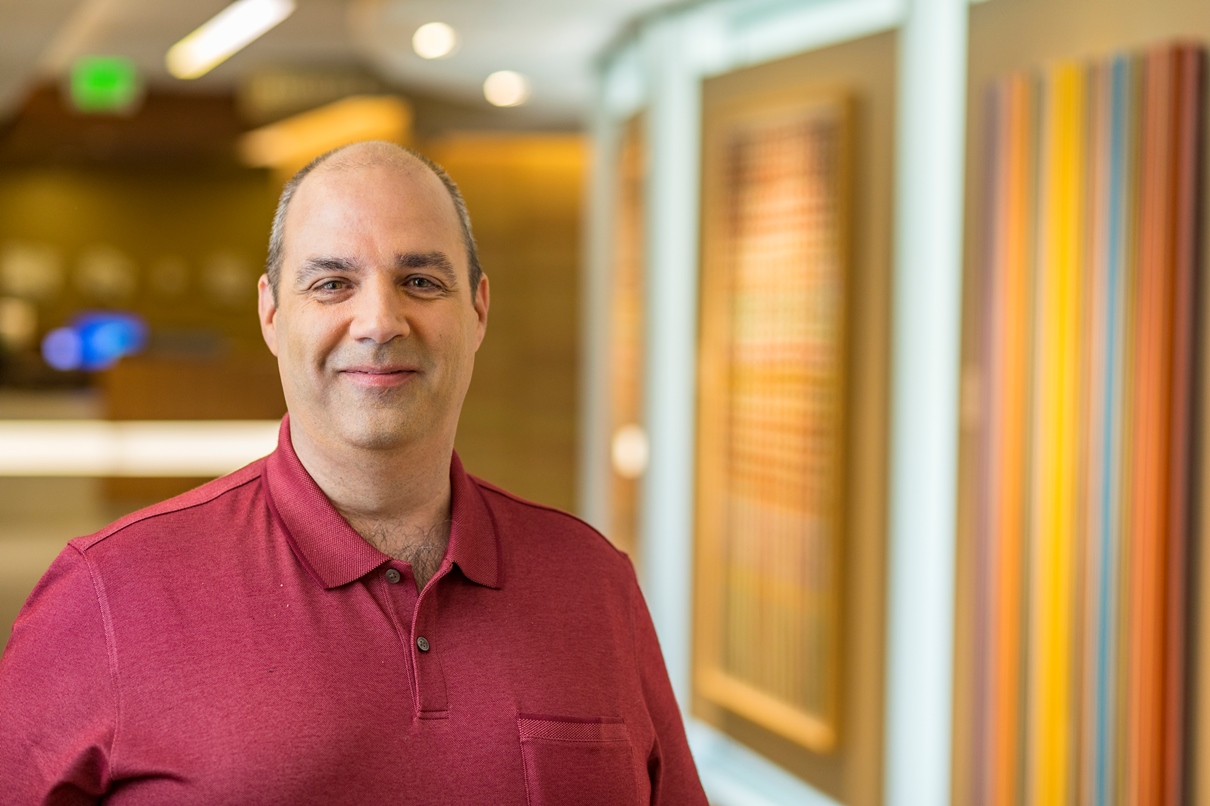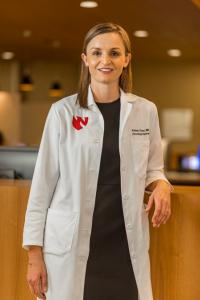Follow your gut

After six months of indigestion, lower abdominal pain and fatigue, Dan Silvia couldn’t blame it on the flu any longer. Something wasn’t right.
Several visits to a local gastroenterologist got him nowhere. “I needed to get some answers,” Silvia says. So he scheduled a visit with his family practitioner at the Bellevue Medical Center. This eventually led to a colonoscopy that revealed colon cancer. Silvia was just 49 years old.
“There has been a rise in colorectal cancers in people 20 to 50 years old over the last decade,” says Kelsey Klute, MD, Nebraska Medicine hematologist and medical oncologist. “Colon cancer is typically a cancer that occurs more frequently among adults 50 and older. As a result, doctors may not be thinking about colorectal cancer when they are evaluating younger adults. In Dan’s case, it was fortunate that he was persistent.”
A baseline screening colonoscopy is recommended at age 50. To schedule your colonoscopy or to make an appointment with a gastroenterologist, call 800.922.0000.
Silvia says reality set in when he sat down with Nebraska Medicine - Bellevue surgeon James Scott, MD, to discuss his treatment. “I was glad I was sitting down,” says Silvia. “When he confirmed in person that I had cancer, all of the blood rushed from my limbs to my gut.”

Several days later, Silvia underwent surgery to remove the tumor. While all surrounding tissues tested negative for cancer, biopsies indicated that the cancer had spread to one lymph node.
Silvia then met with Dr. Klute to discuss part two of his treatment plan. Because biopsies indicated some lymph node involvement, Dr. Klute recommended Silvia chemotherapy at Nebraska Medicine – Village Pointe. Silvia was also assigned a nurse case manager who helped him set up his appointments, follow-up visits became his primary point person when he had questions or concerns or wasn’t feeling well.
“I had a direct line to her,” says Silvia. She was available to me at all hours. “She made me feel comfortable with the whole process and let me know what to expect. It was really reassuring knowing that she was just a phone call away.”
“We expect Dan to do well,” says Dr. Klute.
“The majority of colon cancer patients today are cured. The incidence of colon cancer in all age groups is decreasing and survival rates are increasing due to better screening and treatment. We are doing a better job of detecting and removing precancerous polyps and our surgical, chemotherapy and radiation therapy techniques have also improved.”
Silvia is getting normalcy back in his life again and has made a commitment to take better control of his health. “It’s so important to have good communication with your doctor and make sure you don’t get the ‘take two aspirin and call me in the morning’ treatment,” he says. “You know your body better than anyone else. If you’re not feeling well, see your doctor and make sure you’re getting what you need. You’ve got to be assertive and you’ve go to follow your gut.”


